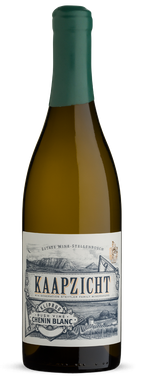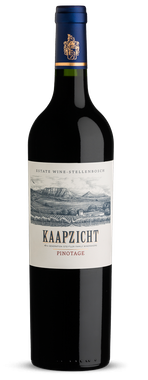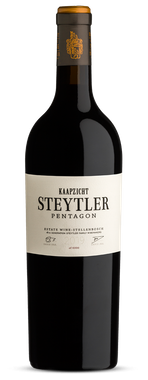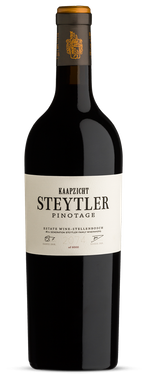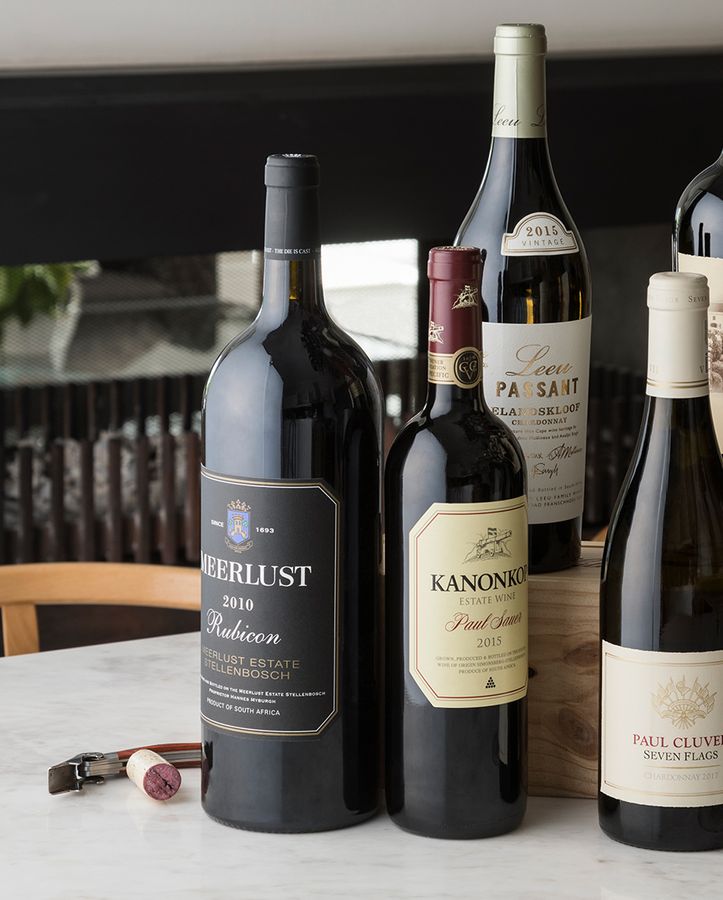Labour-saving devices, shortcuts that reduce quality and quitting before the task is done are NOT characteristics of “old school”. The term came up while Danie Steytler, 4th generation winemaker at Kaapzicht, was describing their Steytler range of wines in comparison to the wines he now makes. “Wines made to age - old school!” he said. It occurred to us that the term not only described the Steytler range of wines, but the family itself, “old school”. Matriarch, mother of Danie Junior, wife of Danie Senior and Export Manager, Yngvild Steytler, writes eloquently about her family and the family business. She writes their whole website as if in conversation: “Since my son does not seem to have any intentions of writing about himself, let me, his mother, introduce him to you.” She does so as only a mother can and in so doing, does away with any perceived pretence, in fact we had the distinct feeling that we were sitting in their "voorkamer" having coffee. This is honest wine, made by honest people with a passion for wine, each other and the land and we were delighted to have Danie Junior respond to our questioning in what we can only imagine to be his trademark, jovial style. We invite you to read the interview HERE.
What is your favourite of all the wines you produce and why?
This is a very difficult question, as winemakers generally regard their wines as children. Some I have adopted from my father and some are my own creations. I can single out the 1947 Chenin as being rather special to me, as it was a wine I created and was the first white wine to win 5 stars for us. The vineyard was the first vineyard planted by my Great Grandfather in 1947 and has seen 4 generations care for it. The Vision is also very dear to my heart!
Having spent a number of harvests abroad, was there a standout experience and why?
I see you like asking difficult questions. Each vintage is special and each place offered great memories, I made good friends during my travels. If I really had to select one, it would probably be my first vintage in France, at Château Grand Manye in Saint-Émilion, Bordeaux. I lived in the big Château with Madame Nony the 65 year old, proper French blue blood, 7th generation owner. Her husband had passed away and her children lived elsewhere so it was just the two of us, a butler and a chef who cooked nothing less than 4 courses every evening. And every evening she would tell me to select a wine from the cellar, which meant that I drank the best wines Bordeaux had to offer, right back into the 40’s AND of all the first growths. I will never get the chance to taste those types of wines again, it was almost wasted on a 25 year old, “nat agter die ore” young winemaker, but it did deepen my love of wine and for that, I will always be thankful.
How would you say your winemaking and winery management style have evolved from generation to generation, especially in response to the ever-evolving consumer?
Consumers don’t store wines anymore, so there is pressure to produce ready-to-drink wines. I think in general wine machinery has also become more advanced and we extract less and more gentle tannins. My wines are also more fruit driven than the more powerful structured wines of my father and grandfather. We do however still make the Steytler range, which are wines made to age - old school!
With your father bowing out this year, what would you say you’ve learnt from his tremendous career?
Winemaking is not a career or a job - it is a lifestyle and luckily we both love what we do.
What would you say you’ve introduced since becoming the official winemaker at Kaapzicht?
Kaapzicht was always seen as a red wine producer, hopefully with the two “new” Chenins (The Kliprug and 1947) we can also be seen as a good white wine producer.
Would you say you’re a winemaker in the cellar or the vineyard, more farmer or winemaker?
The best wines are made in the vineyard, all winemakers know this. I personally spend more time in the cellar as we have a very good viticulturist, Robert Stolk, and his team do all the hard work in the vineyard.
Were you always going to become a winemaker like your mother says?
Growing up on a farm is a great privilege. You have space to play, build tree houses and hide-outs, ride horses, motorbike, build your own go-carts from old lawnmower engines, hunt guinea fowl and braai them on fires in the bush. But as much fun as it is you also see all the hard work, which is continuously being done (something outsiders don’t often see). Managing 190ha and 60 permanent workers is no easy task, and farming at the best of times is hard. I was under no illusion that the life I chose was going to be moonshine and roses, but it was what I was used to and something I already knew something about. So yes, it was always going to be wine farming.
Are there any more obscure varietals you feel would be suited to your Bottelary Hills terroir? And would you like to diversify your offering even more in the future, or simplify?
I am still in two minds about this. As a business, the way forward would definitely be to SIMPLIFY - 10 products x 100 cases is better than 100 products x 10 cases. But as a winemaker I really enjoy experimenting and creating new products. I also think as the climate changes we need to look to cultivars that can better manage the heat and drought, so rather Touriga Nacional than Pinot Noir, for example.
What are your thoughts on bush vine and please tell us more about the 1947 and 1952 project?
Old bush vines can produce magic wines, not always, but sometimes if planted in the right place, they can. They have more developed, deeper root systems, so can cope better with a heat wave, thus retaining better acidity and better pH. Basically the old bush vines produce less fruit than a young trellised vineyard, less fruit with smaller berries that produce more intense/ concentrated wines - that is the theory. I am lucky that we still have some old vines on our farm, and if I’m honest these vineyards survived because there wasn’t any money to replace them. In the 70’s, 80’s and even 90’s, a farmer was paid for tons or litres, delivered to the bigger co-ops. Quality was less important and high yields were the focus point. This is also why the industry planted so much Chenin, Colombar and Cinsault as they produced higher yields. In 1984 when we started bottling our own wine, the focus changed to quality, and so higher yielding vines were replaced with more “noble” ones. The 1947 vineyard is now the second oldest Chenin vineyard in the country (70 years old) and it makes magic wines. We then also brought out the 1952 Cinsault this year (our newest product). It was planted the same year as my father was born, and on his retirement we thought this wine was a good way to honour him.
We suggest you sample their wines here.
